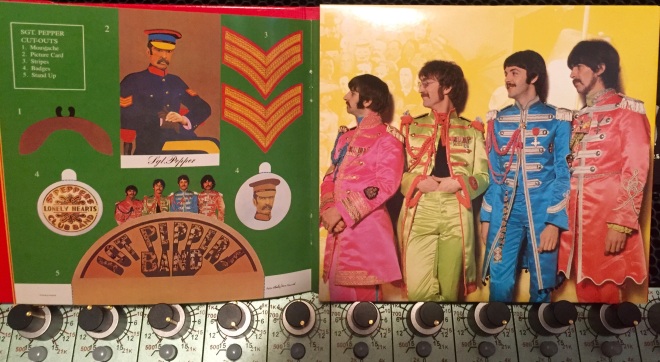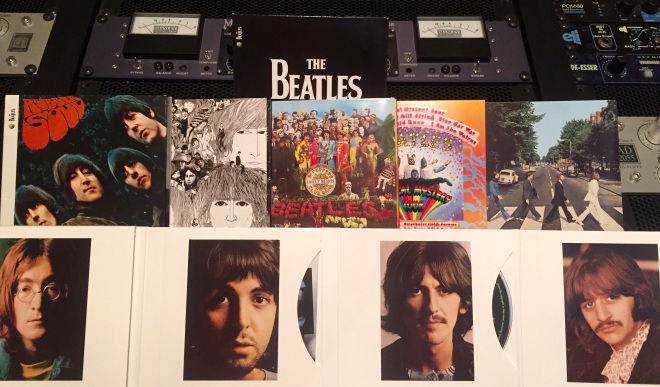
Keith Emerson, virtuoso keyboardist of ELP, is no longer with us. It blows my mind to think that he believed suicide was his best option.
Because I am thankfully not prone to depression, I cannot comprehend the idea that not seeing tomorrow’s sunrise would be a better option than waking up to explore the vast horizon of endless possibilities potential in each and every day. Then again, I love a good mystery, so God forbid I were to get sucked into a daytime soap opera. Or to get started on Breaking Bad, because I would almost certainly binge-watch the entire series if it is truly as good as I am told.
I simply cannot wait to find out what happens next. Good or bad, it almost doesn’t matter. I suppose that’s because I find serendipity in tests and difficulties. I believe that they are the equivalent of the fire through which a sword must pass before it is ready for battle. When I broke ten bones in a state championship bicycle race in 2004, my friends were more bummed out than I was. They focused on what I could no longer do for the next two months: race. I, on the other hand, focused on the adventure of spicing up my life with some variety. I bought power tools so that I could make furniture during the 14 extra hours I would have every week. I ticked some long postponed projects off my To Do list. I hired other guitarists to do my recording sessions, and I learned a bunch of new chops in the process. I had a great time, even if I happened to be in pain. A few weeks later, I was back in the saddle again, invigorated by fresh perspective and new life experiences that raised my game both in the studio and at the races. What initially appeared to be devastating, eventually proved to be a blessing.
My dear friend and mentor, Keith Wechsler, worked closely with Keith Emerson as his producer. They became good friends. KW told me a few years ago that Emerson developed a physical ailment that severely handicapped his hands and his ability to perform. Rather than retiring, Emerson figured out how to make two or three fingers do the work of five. He played great, despite his misfortune. Given what I knew, I assumed that he adapted, so I was surprised to hear of his suicide. I guess he identified more with what he did physically than who he was as a spiritual being. Apparently if he couldn’t play piano like a madman or entertain his fans with wicked chops, life wasn’t worth living.
That concept is noteworthy because many artists have a very high need for approval from their fans and peers. Without approval (in the form of recognition, critical acclaim, financial success, etc.), artists often feel like their artistry lacks merit. In the record business, artists without recording contracts often feel like frauds because they do not have the validation of some self-proclaimed “arbiter of worthiness” who may not possess even the most basic hints of musical talent. I’m not saying that all A&R folks lack talent…I’m saying that we, by definition of our job descriptions, have an almost fiduciary responsibility to sign commercially viable entertainers, not necessarily great artists. It is tragic when a great band bails out because they took it too hard when some nonmusical bureaucrat in a suit rejected the band’s demo tape after eating bad sushi for lunch or getting dumped by a lover.
If you’re an up and coming artist looking for somebody in a position of power or influence to open a door for you, remember this: Do something because you love to do it, not because you hope somebody else will like you for it. This is the only way that your art will remain pure. Otherwise you’ll be chasing a moving target while creating “art by committee.”
This is where Emerson and I fundamentally differ. My attitude is to roll with a good thing while it lasts, and then be grateful for the past while I write a new adventurous chapter for the future. When he thinks it’s game over, I think we’re beginning Game 2 of a doubleheader. Did he ever consider the possibility that many fans would have loved to hear him speak about his music, or to take a master class from him, or to be mentored by him? His music was the soundtrack to many peoples lives. There’s a lot more he could have given if he was willing to adapt. Emerson’s music was cool, but it was by no means the only cool thing about him. In this article, Dream Theater keyboardist Jordan Rudess states, “Evidently [Emerson] was upset that he couldn’t play the same anymore due to physical issues; that he could not deliver for the fans. I will always think about that now. About the realities of what we do as players, and what I need to be aware of. In that respect, Keith Emerson will never stop teaching me.”
If there is anything that I hope you will take away from today’s blog post, it is the belief that a life well lived is its own reward. Don’t look to others for approval of your art; do it because you love it, regardless of how others react to it.
The second takeaway is to be open to serendipity. You may not always get what you want, but with hindsight, it becomes clear that you often get what you need.


